2017 Can-Am Maverick X3 MAX X RS vs. Polaris RZR XP 4 Turbo EPS: By the Numbers
No two brands have been as aggressive in the Sport Side-by-Side world as Can-Am and Polaris. When one comes out with an innovative machine, you can rest assured that the other will follow close behind with an answer. This back and forth is once again on display with their latest multi-passenger vehicles. Let’s dig right into our Can-Am Maverick X3 MAX X RS vs. Polaris RZR XP 4 Turbo EPS comparison.
| 2017 Can-Am Maverick X3 X RS MAX | 2017 Polaris RZR XP 4 Turbo | |
| Price | $27,499 | $29,099 |
| Engine | 900cc Fuel Injected Triple | 925cc Fuel Injected In Line Twin |
| Horsepower | 154 | 168 |
| Driveline/Differential | Selectable 2WD/4WD with Visco-Lok X Auto Locking front differential | High Performance On-Demand True AWD/2WD |
| Transmission | Automatic Quick Response System CVT P/R/N/H/L | Automatic PVT P/R/N/L/H |
| Wheelbase | 135.0 in | 117.0 in |
| Overall Dimensions (LxWxH) | 165.5” x 72” x 66” | 146” x 64” x 73.75” |
| Dry Weight | 1,840 lbs | 1,691 lbs |
| Front Tires | 30×10-14 Maxxis Bighorn 2.0 | 29×9-14 Maxxis Bighorn |
| Rear Tires | 30×10-14 Maxxis Bighorn 2.0 | 29×11-14 Maxxis Bighorn |
| Ground Clearance | 14.0 in | 13.5 in |
| Fuel Capacity | 10.5 gal | 9.5 gal |
| Front Suspension/Travel | Dual A-Arm with swaybar / 22” | Dual A-Arm with Stabilizer Bar / 16” |
| Rear Suspension/Travel | 4-link Torsional Trailing-arm X (TTX) with sway bar / 22” | Trailing Arm with Stabilizer Bar / 18” |
| Front Shocks | FOX 2.5 PODIUM RC2 Piggyback with bypass, dual speed compression and rebound adjustment | 2.5″ FOX Podium Internal Bypass Shocks with 24-Position Adjustable Clickers |
| Rear Shocks | FOX 3.0 PODIUM RC2 Remote reservoir with bypass, dual speed compression and rebound adjustment | 3″ FOX Podium Internal Bypass Shocks with 24-Position Adjustable Clickers (Remote Reservoir) |
| Front Brakes | Dual 262 ventilated disc brakes with hydraulic twin piston calipers | Hydraulic Discs with Triple Bore Front Calipers |
| Rear Brakes | Dual 248 ventilated disc brakes with hydraulic twin piston calipers | Hydraulic Discs with Dual-Bore Rear Calipers |
| Lighting | LED headlights and tail lights with unique Can-Am LED signature | White LED, Low/High & Red LED Tail / Brake Lights |
| Instrumentation | Multifunction analog/digital: speedometer, tachometer, odometer, trip and hour meters, fuel, gear position, sport / ECO mode, seat belt and 4 x 4 indicator, diagnostics, clock, auto shut off | New Digital Gauge, Speedometer, Odometer, Tripmeter, Tachometer, Coolant Temperature, Volt Meter, Hour Meter, Service, Indicator, Clock, Gear Indicator, Fuel Gauge, Hi-Temp Light, Seatbelt Reminder Light, 2 DC Outlets (Front & Rear) |
| Rack/Bed Capacity | 150 lbs | 300 lbs |
| Bed Dimensions L x W x H | n/a | 28” x 22” x 7” |
| Power Steering | Standard – 3 mode Dynamic Power Steering | Standard |
How the Can-Am and Polaris make power is very different.
The RZR 4 Turbo runs a 925cc twin-cylinder ProStar turbocharged high output four-stroke DOHC engine. Polaris claims this engine produces 168 horsepower. It has electronic fuel injection and powers an automatic PVT transmission with P/R/N/L/H gears.
The Maverick X3 X RS Max runs a Rotax ACE (Advanced Combustion Efficiency) 900 cc turbocharged three-cylinder engine. Can-Am claims 154 horsepower. It has Can-Am’s Quick Response System X (QRS-X) CVT transmission with high airflow, and L / H / N / R / P gears. It too, has EFI and Can-Am’s Intelligent Throttle Control (iTC).
On paper, the suspension systems from each machine are very similar.
Out front, the Polaris has Fox 2.5-inch Podium internal bypass shocks with 24-position adjustable clickers. These are set on dual A-arms with a stabilizer bar and 16 inches of wheel travel.
The Can-Am has Fox 2.5 Podium RC2 piggyback shocks with bypass, dual speed compression and rebound adjustments. These are set on dual A-Arms, also with a stabilizer, and offer 22 inches of travel.
Out back, the RZR 4 Turbo has 3.0-inch Fox Podium remote reservoir shocks with internal bypass and 24-position adjustable clickers. These have 18 inches of travel and connect via trailing arms with a stabilizer bar.
The X3 Max has Fox 3.0 Podium RC2 remote reservoir shocks with bypass, dual speed compression and rebound adjustments. They have 22 inches of travel and connect with four-link torsional trailing-arms with a sway bar.
So now that you know how much power they make, and how the suspension set up on each machine compares, it’s time to see if either machine will fit on your trailer.
The RZR is 146 inches long and 73.75 inches high. The width, a common concern with some trails, is 64 inches. The overall wheelbase is 117 inches and it has 13.5 inches of ground clearance.
The X3 is a whopping 165.5 inches long and only 72 inches high. The width on the Max X RS package is 66 inches. It has a 135-inch wheelbase and 14 inches of ground clearance.
The RZR weighs in at an estimated 1,691 lbs dry weight, while the X3 Max tips the scales at an estimated 1,840 lbs dry.
Both machines run on Maxxis Bighorn 2.0 rubber on 14-inch aluminum wheels. The RZR runs 29-inch tall tires and the X3 rolls on 30-inch tires.
The Polaris RZR XP 4 Turbo EPS lists for $27,499 and comes in Titanium Matte Metallic, Velocity Blue and Cruiser Black color combos. You can learn more about the Polaris here.
The Can-Am Maverick X3 Max X RS has an MSRP of $29,099.00 and comes in Black Out, or gold and red. The base Maverick X3 MAX retails for $24,999. You can learn more about the Can-Am here.
Derrek's love for all things ATV started when he was a mere 11 years old, growing up on his family farm. His mom gave him and his sister a choice - get a horse, or a three-wheeler. The sister wanted the horse, and Derrek wanted the ATV. Luckily he won out, and was soon burning up the trails on a Yamaha Tri-Moto 200. By the time he was 14, he had saved enough of his own money by working on the farm and in his folks restaurant to buy a new 4-wheeler. That happened the day he and his mom were driving past the dealership and saw 1987 Banshee. His mom had no idea what he was buying, and he never looked back. He's been riding ever since, and been writing professionally for many years. He has ridden all over North America and been behind the controls of just about every machine out there. And yes, he still has his 1987 Yamaha Banshee.
More by Derrek Sigler



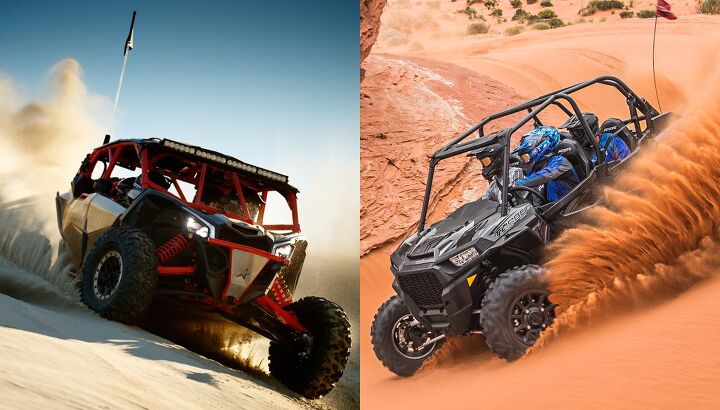




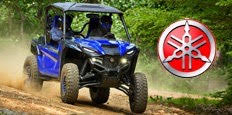






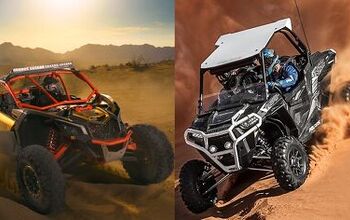
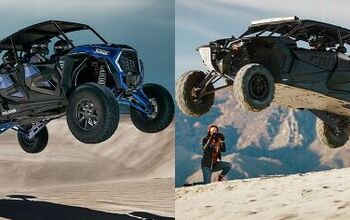
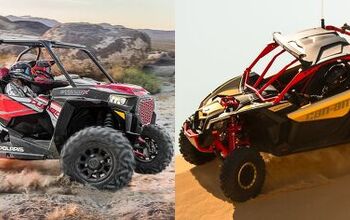
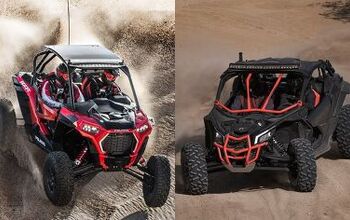
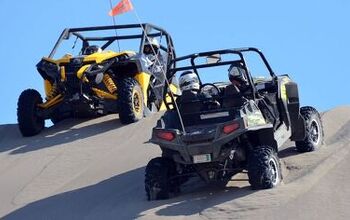
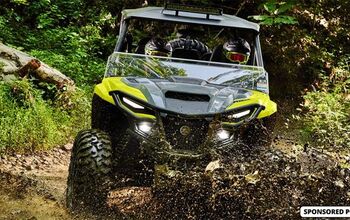
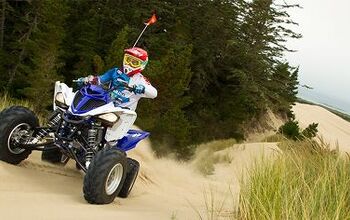
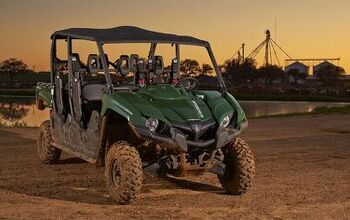
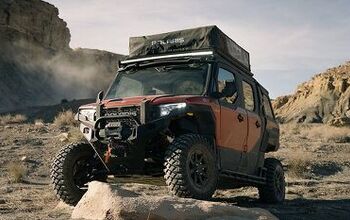
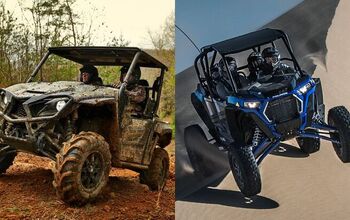
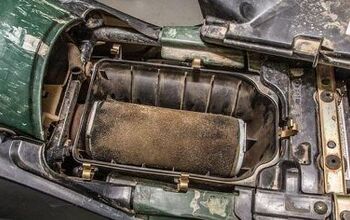
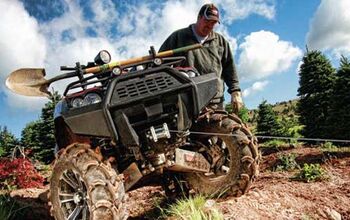
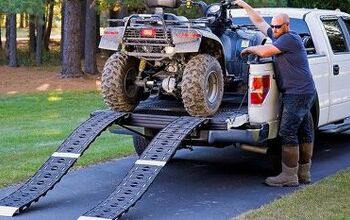
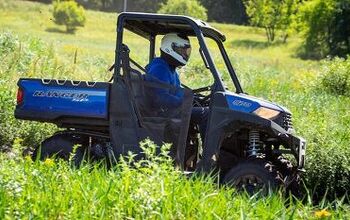
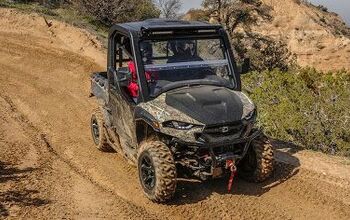
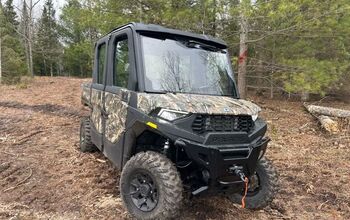
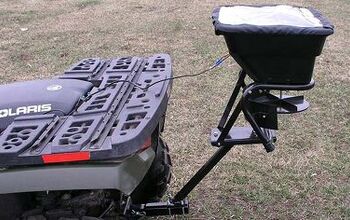
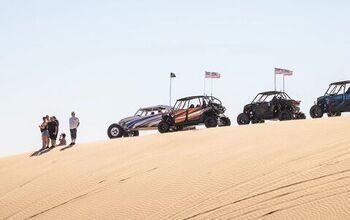
Comments
Join the conversation